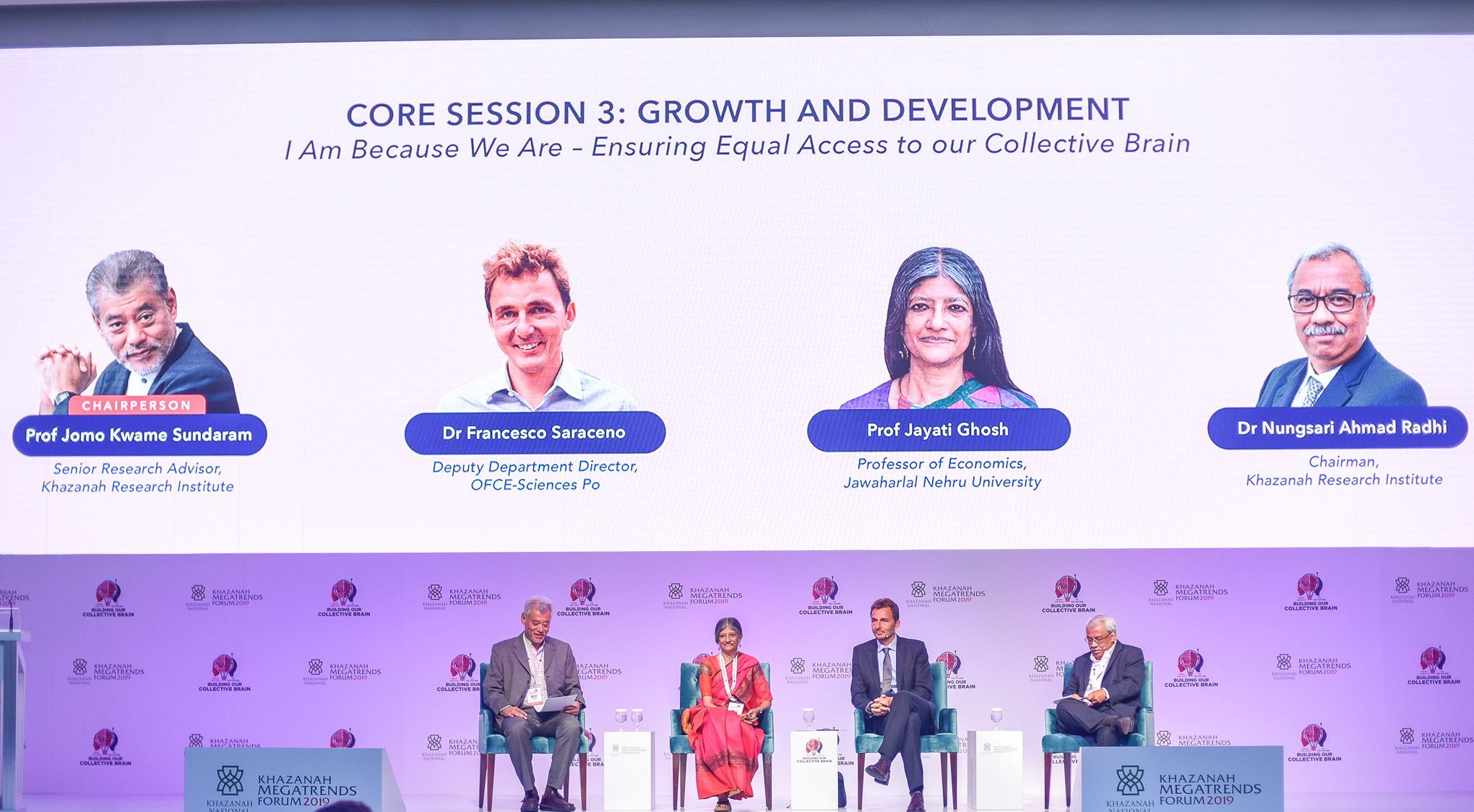Session Summary
The world is too complex to be left to either the Market or the State to drive growth and development.
Growth and development cannot be left completely to the Market.
Rational markets have short-term interests that can run contrary to long-term collective interests.
The role of State as a market facilitator has been increasingly challenged.
State can be empowered to drive certain economic outcomes in line with long-term collective interests.
Nevertheless, it is important to recognise the limits of any policy solution.
A silver bullet does not exist. All policies entail costs and benefits, with winners and losers.
Policy making can benefit from enlarging our policy toolbox.
The existing dogma on fiscal consolidation limits potential policy solutions.
Empirical evidence suggests expansionary fiscal policies can have strong multiplier effects on aggregate demand.
Fiscal policy can be used to change incentive structures.
This can affect factor allocation in the market, resulting in more equitable and effective outcomes.
Fiscal spending in itself is not fiscal stimulus. It is not what you do, but how you do it.
The context of implementation is just as important as the size of the policy.
Efficiency and appropriateness of fiscal policy are dependent on local context.
Spending for spending’s sake is not enough.
It is also important to consider how public spending can be used to not only affect aggregate demand but also the structure of supply.
